"Giotto’s Scrovegni Chapel and Padua’s fourteenth-century fresco cycles" - UNESCO World Heritage
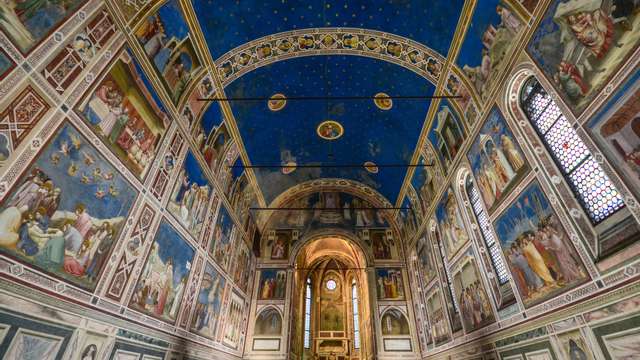
Padua
Scrovegni ChapelThe Scrovegni Chapel houses one of the most outstanding masterpieces of figurative art of all time, the complete fresco cycle created by Giotto
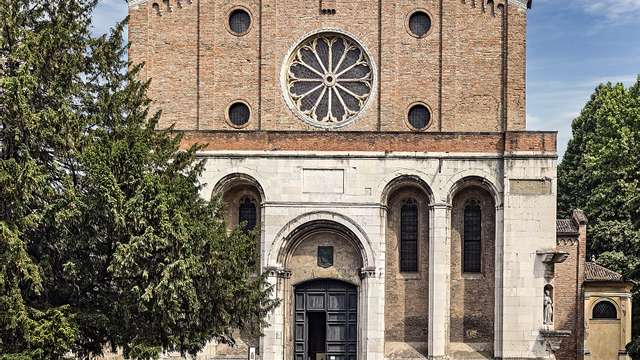
Padua
Church of the EremitaniThe church, partially destroyed in 1944, preserves the remains of the splendid frescoes painted by Guariento and Andrea Mantegna
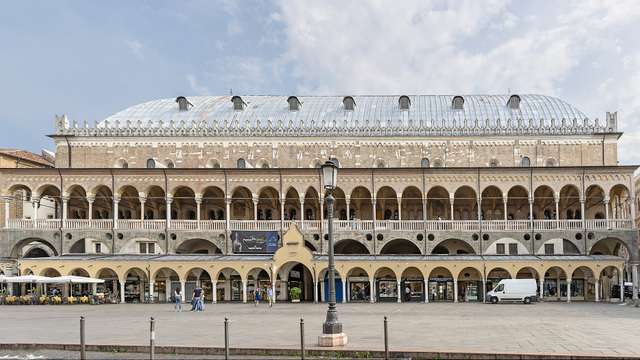
Padua
Palazzo della RagioneA true miracle of architectural audacity and an impressive collection of fourteenth-century mural paintings, the only secular and civil commission executed by Giotto in Padua
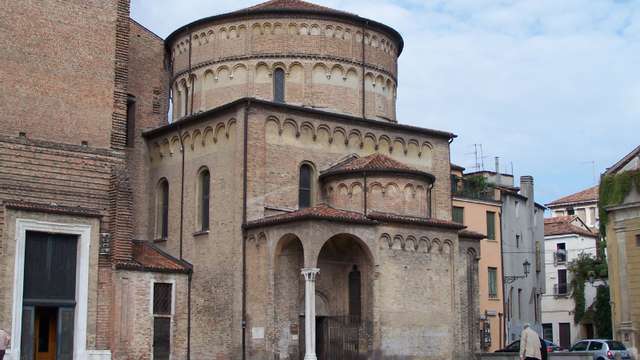
Padua
Cathedral BaptisteryThe masterwork by Giusto de' Menabuoi, the frescoes are inspired by scenes from the Old and New Testaments, which culminates in the splendid image of Christ in Paradise
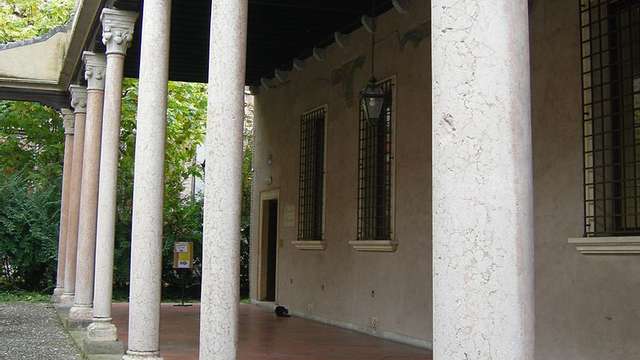
Padua
Chapel of the Palazzo CarrareseThe Chapel with its frescoes painted by Guariento is a fantastic testimony of the splendor of what used to be the Carrara Palace
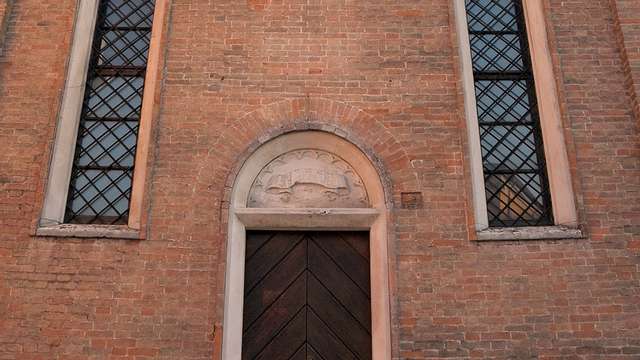
Padua
Oratory of Saint MichaelA historical church decorated by Jacopo da Verona with frescoes inspired by the Gospels, episodes from daily life, and portraits of leading figures of fourteenth-century Padua
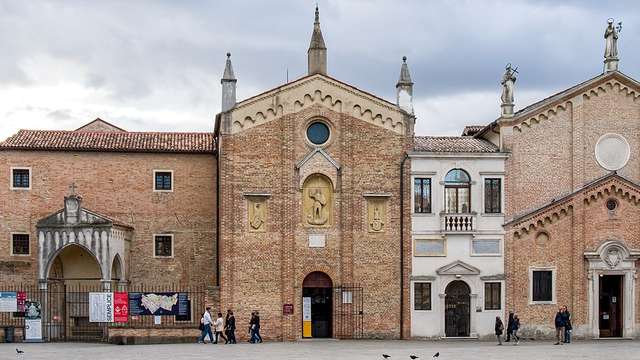
Padua
Oratory of Saint GeorgeAn aristocratic family mausoleum decorated by Altichiero da Zevio with frescoes depicting scenes from the Life of Christ and of Saint George
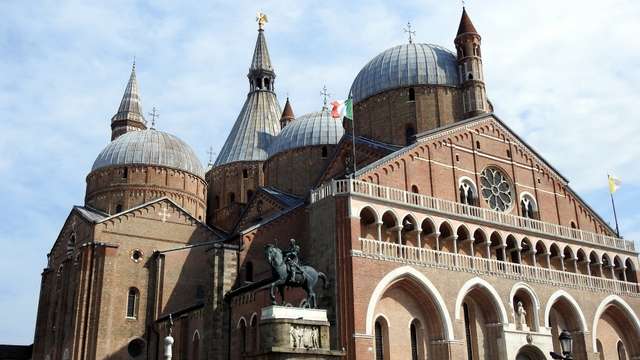
Padua
Basilica of Saint AnthonyOne of the most famous and visited sanctuaries in the world and a testament of art decorated by Giotto, Giusto de' Menabuoi, Altichiero da Zevio, and Jacopo Avanzi
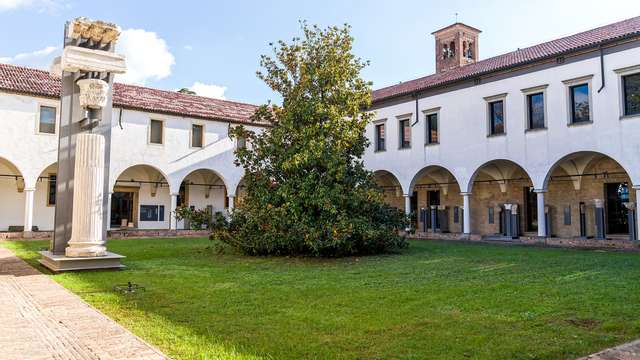
Padua
Eremitani Civic MuseumsThe most important Paduan complex of museums features the Archaeological Museum and the Museum of Medieval and Modern Art in a charming former convent.
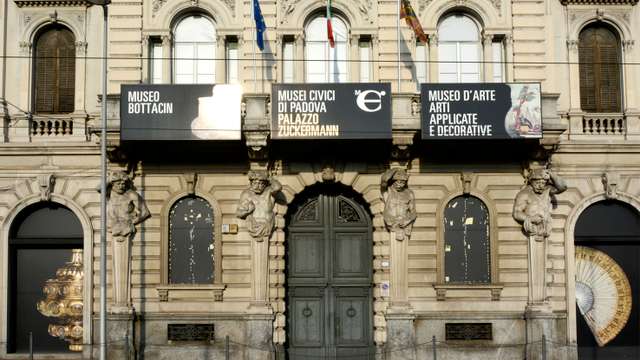
Padua
Palazzo ZuckermannPart of the Eremitani Civic Museums complex, the palazzo houses the Museum of Applied and Decorative Arts and the Bottacin Museum in its rooms.
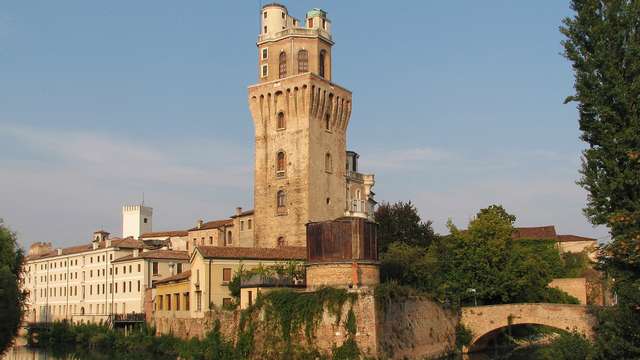
Padua
La Specola, the astronomical observatoryLa Specola has been the astronomical observatory of Padua since 1765, built in the tower of Castelvecchio, the ancient castle of the city and the pride of medieval Padua.
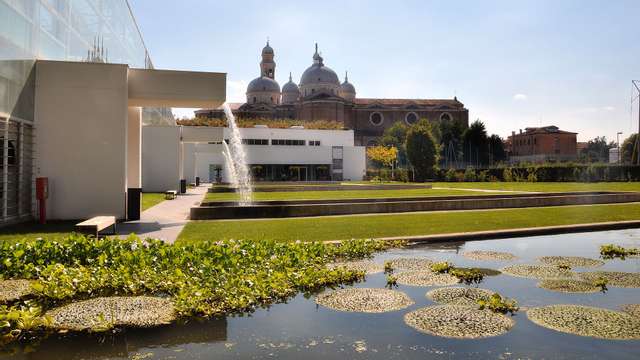
Padua
Botanical Garden of PaduaThe oldest Heritage Garden in the world, home to over 6,000 different plant specimens and the futuristic Garden of Biodiversity
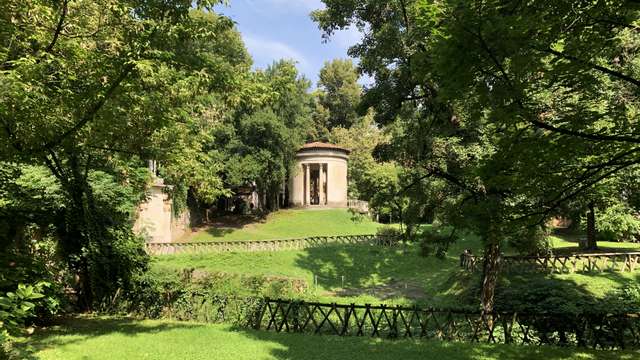
Padua
Treves De' Bonfili GardenThe Giardino Treves de' Bonfili is one of Padua’s most renowned historical gardens, a hidden jewel of architectural and landscape creation by Giuseppe Jappelli.
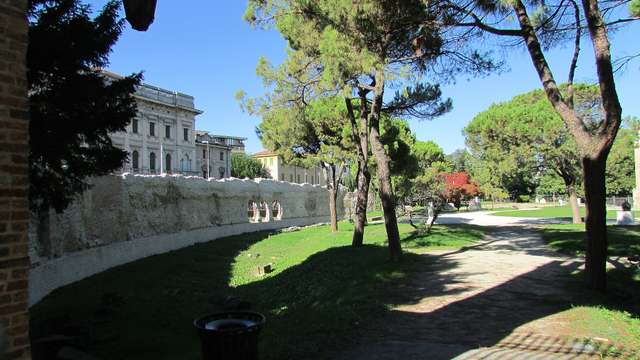
Padua
The Roman Arena and the Arena GardensThe Roman Arena of Padua was an amphitheatre used for gladiator games in the ancient Patavium. The Arena ruins are now part of the Giardini dell'Arena park.
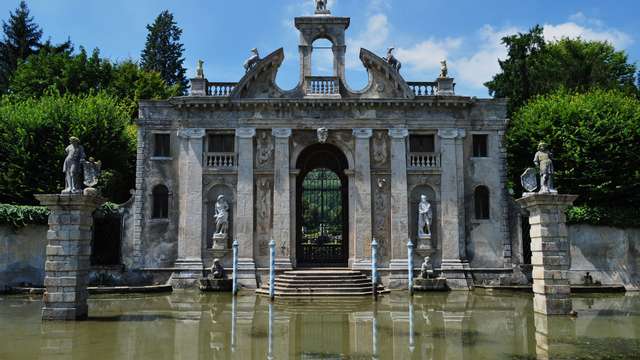
Galzignano Terme
Monumental Garden of ValsanzibioThe remarkable Baroque garden of Villa Barbarigo has been described as "The Small Versailles - The Pearl of the Euganean Hills"
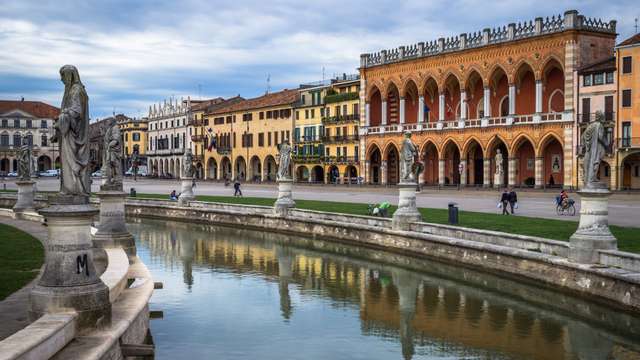
Padua
Prato della VallePrato della Valle in Padua is one of the most spectacular squares in the world and, with its 90,000 square meters, is one of the largest in Europe.
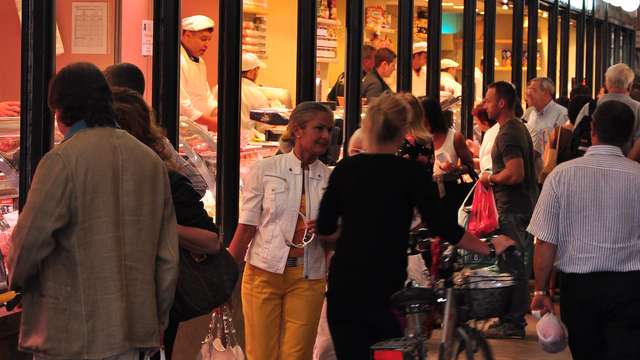
Padua
The Market of Palazzo della RagioneThe Palazzo della Ragione, built in the Middle Ages as the seat of the city courts, still hosts on the ground floor one of the oldest European markets
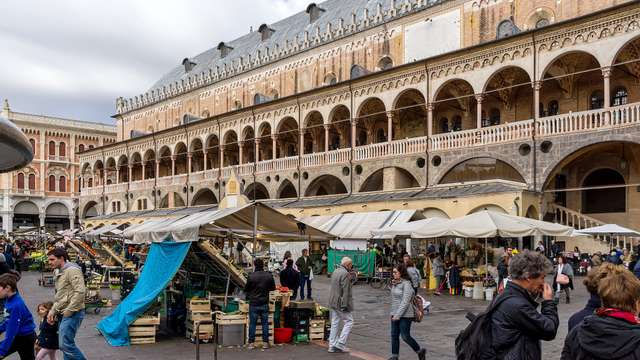
Padua
Piazza delle ErbePiazza delle Erbe, one of the two squares that embrace the Palazzo della Ragione, is the temple of the Spritz cult and one of the most popular socializing places in Padua.
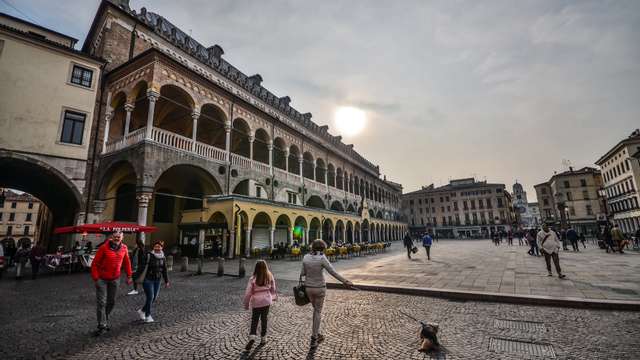
Padua
Piazza della FruttaPiazza della Frutta, once called Piazza del Peronio, has been the commercial heart of Padua for centuries.
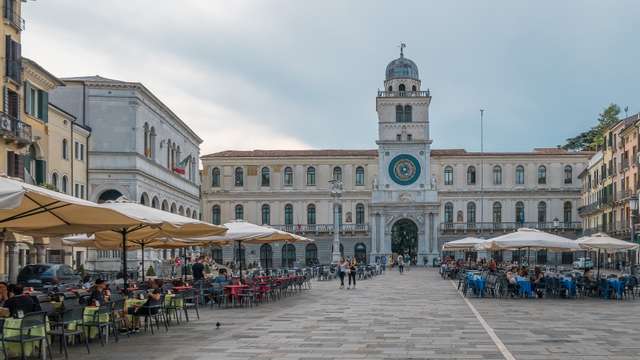
Padua
Piazza dei SignoriPiazza dei Signori is an elegant open square surrounded by monumental works, fulfilling the role of the grand living room of Padua.
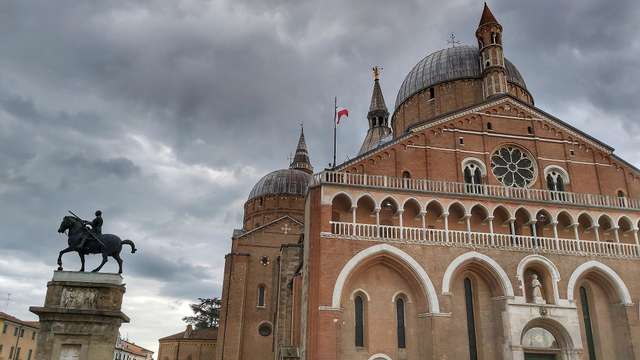
Padua
Piazza del SantoPiazza del Santo is a miniature citadel sheltered by the splendid masterpieces of the Oratory of Saint George and the Gattamelata statue.
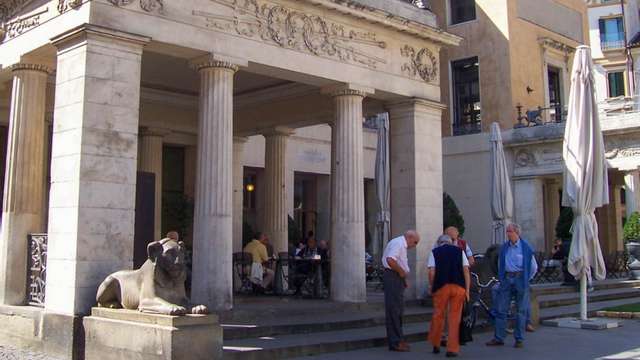
Padua
Caffè PedrocchiCaffè Pedrocchi, one of the symbols of modern Padua, a café with historical prominence recognized for its coffee and good food
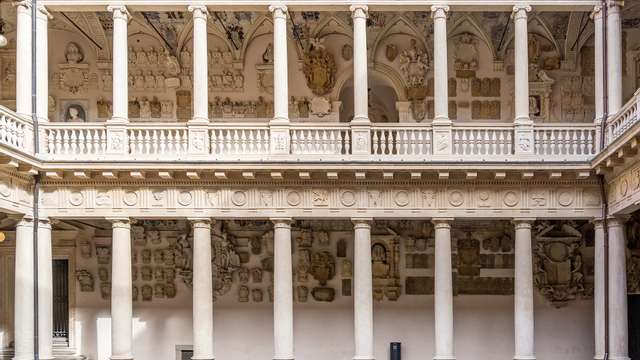
Padua
Palazzo BoThe Palazzo del Bo in Padua is a fifteenth-century complex and the historic seat of the University of Padua, one of the oldest universities in the world.
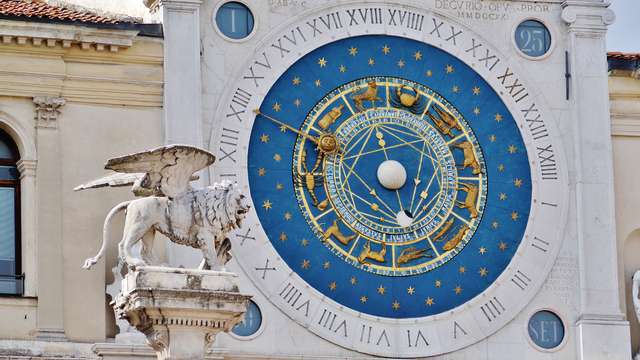
Padua
The Astronomical Clock TowerTorre dell'Orologio is a medieval clock tower which rises between the Piazza del Capitaniato and Piazza dei Signori, representing one of the symbols of the Carrarese era in Padua.
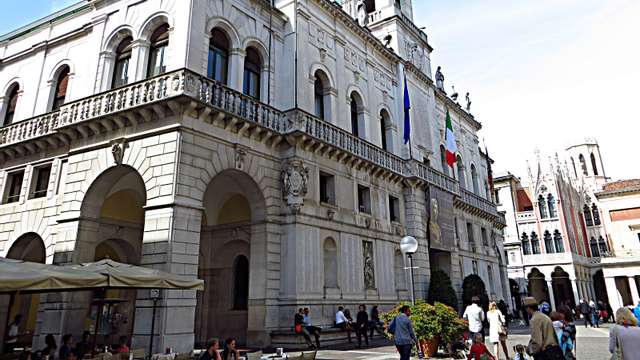
Padua
Palazzo MoroniPalazzo Moroni, the usual name for the Municipal Buildings, is a complex of buildings in the city’s heart that house the offices of the Municipality of Padua.
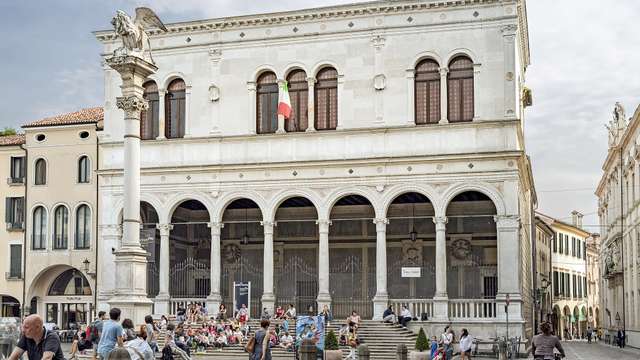
Padua
The Council LoggiaOne of the beautiful Venetian buildings surrounding the square of Piazza dei Signori is Loggia del Consiglio, an outstanding example of the architecture of the 15th and 16th centuries.
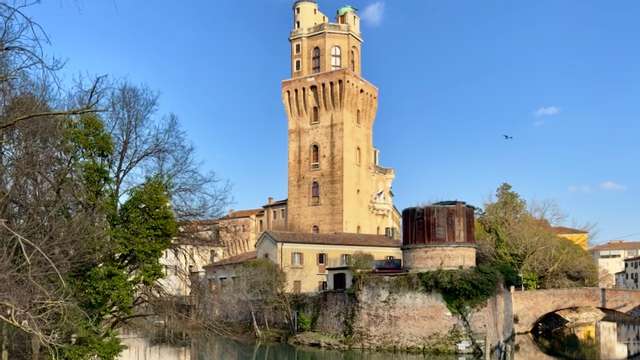
The castle is one of the important sites of Padua that have marked its history with its identity, an architectural space where great events are intertwined with the life of men that have left their memories in stone
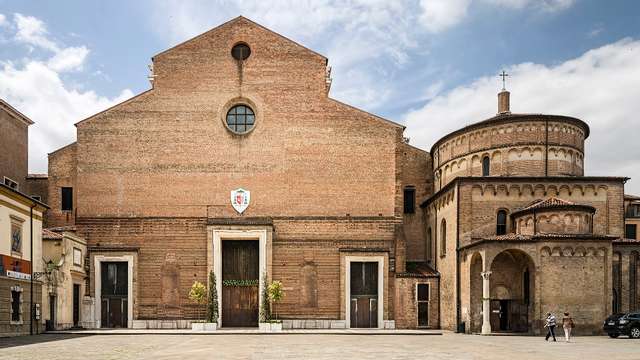
Padua
The Cathedral of PaduaPiazza Duomo, one of the squares in the heart of Padua, is characterized by the silhouettes of the Cathedral standing between the Episcopal palace and the Baptistery
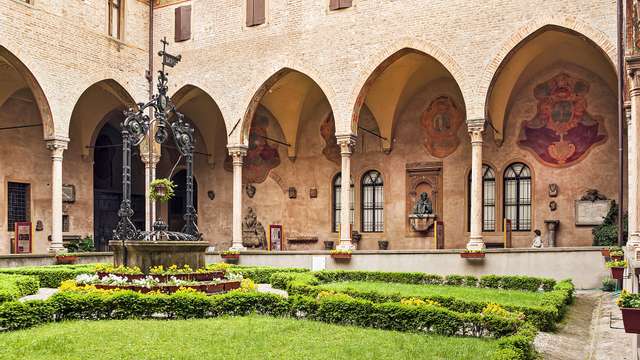
Padua
The Monastery of Saint AnthonyOnce the humble dwelling of Saint Anthony, the Friary developed over the centuries into the five splendid cloisters located on the southern side of the Basilica.
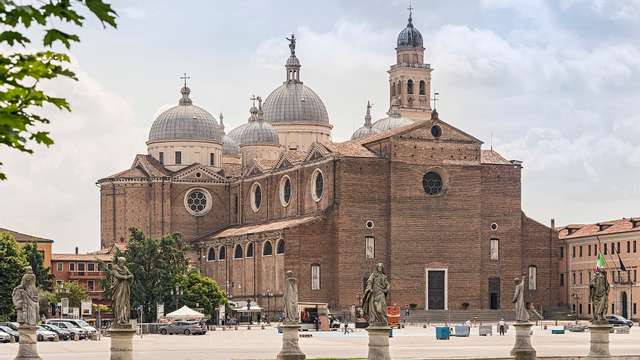
Padua
Basilica of Santa GiustinaThe Paduan Basilica is one of the largest churches in the Christian world and one of the greatest masterpieces of Renaissance architecture.
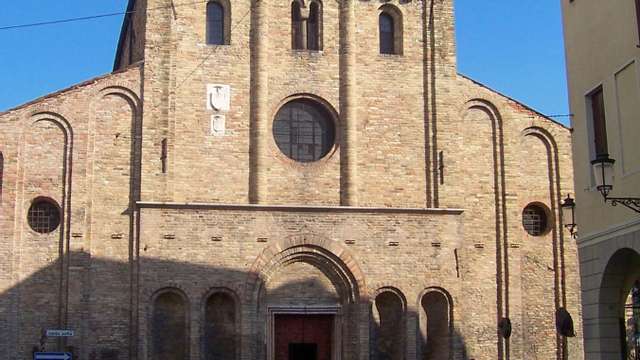
Padua
Church of Santa SofiaThe oldest church in Padua, dedicated to Saint Sophia, was the original cathedral of Padua, built in the twelfth century on the site of a previous pagan temple.
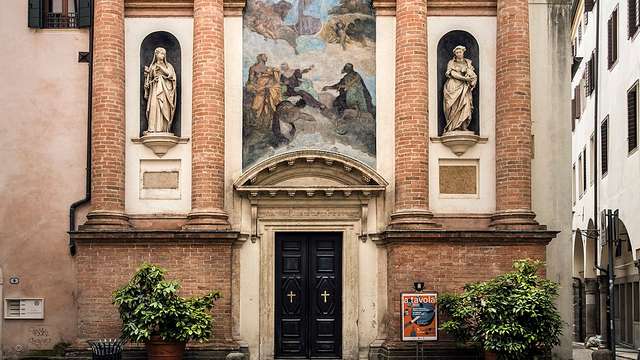
Padua
Church of San CanzianoOne of the oldest churches in the city, also popularly known as the Church of Santa Rita, it is historically a place of faith and meditation.
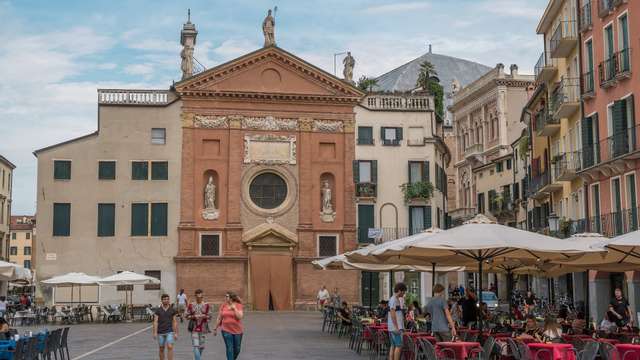
Padua
Church of San ClementeThe Church of San Clemente is a small Baroque-style Roman Catholic church with an ancient history overlooking the Piazza dei Signori.
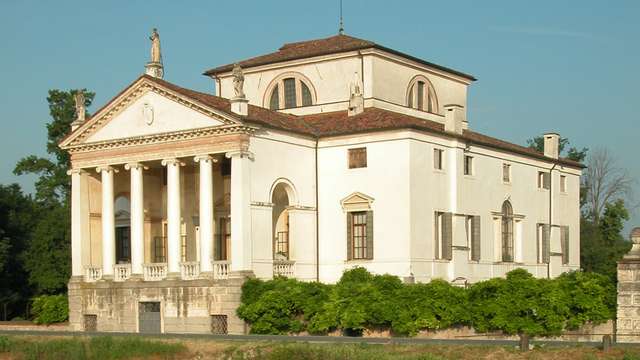
Padua
Villa MolinVilla Molin is a patrician residence in the neighborhood of Mandria, in Ponte della Cagna, south of Padua. It was designed for Nicolò Molin, a Venetian noble, by Vincenzo Scamozzi and completed in 1597.
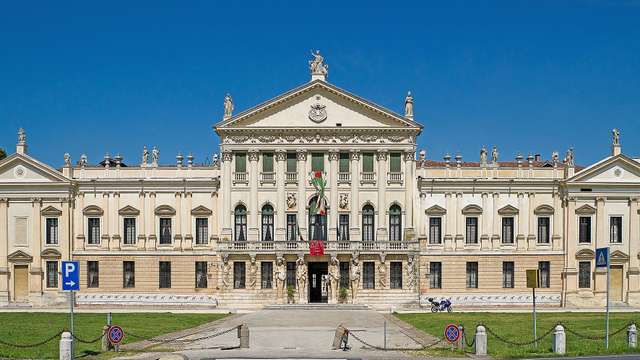
Stra
Villa PisaniVilla Pisani is a monumental, late-Baroque rural palace located along the Brenta Canal in Stra, and is one of the largest examples of Villa Veneta located in the Riviera del Brenta, the canal linking Venice to Padua.
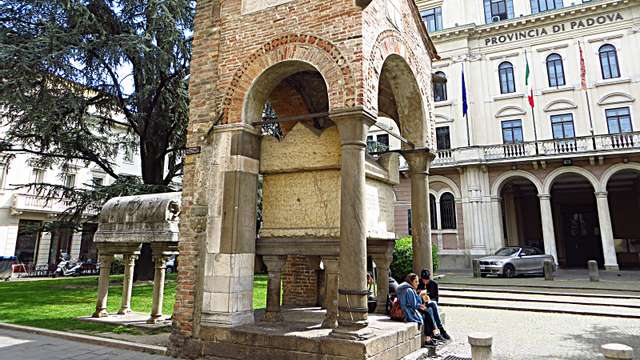
Padua
Tomb of AntenorThe Tomb of Antenor is a monumental medieval shrine built to hold the sarcophagus of Antenor, a legendary Trojan prince who founded Padua.
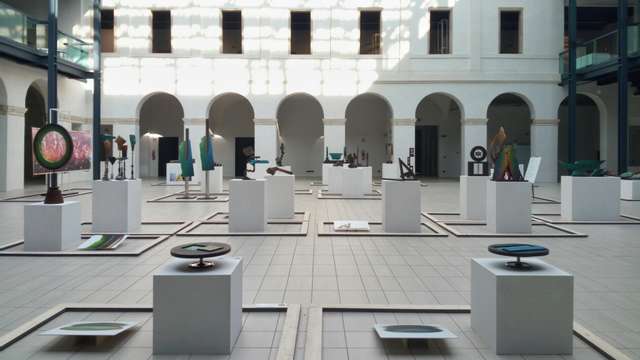
Padua
The Altinate San Gaetano Cultural CentreThe Altinate San Gaetano is the splendid cultural centre of Padua, designed to promote and disseminate culture in all its forms.
Padua
Liston, the pedestrian street of PaduaIn Padua, the pedestrian streets from the city centre are known as Liston, an area extending from Piazza Garibaldi all along to Prato della Valle.
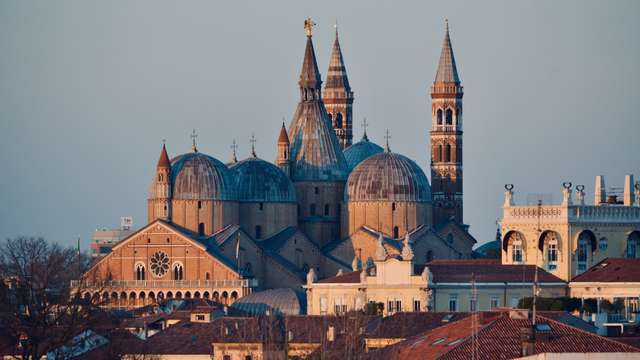
Padua, the city of Saint Anthony, is a modern and lively city with a fusion of art, faith, well-being, and cultural tourism.